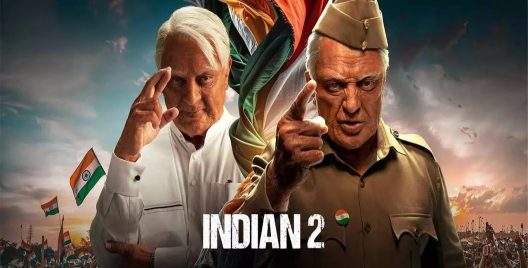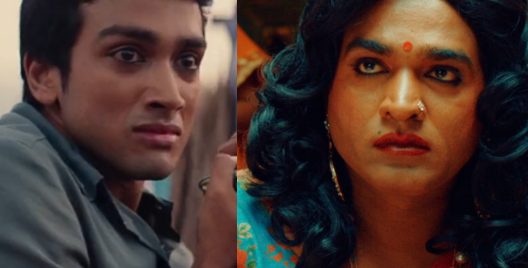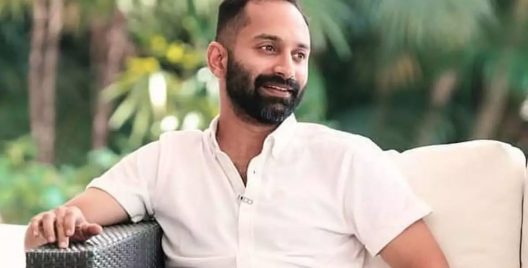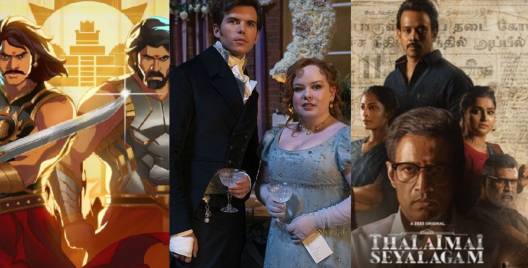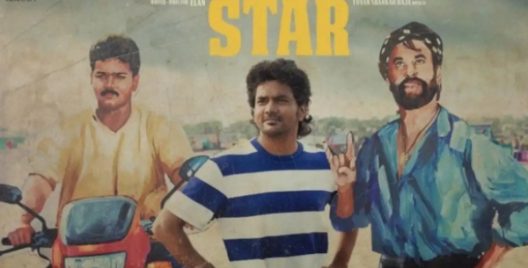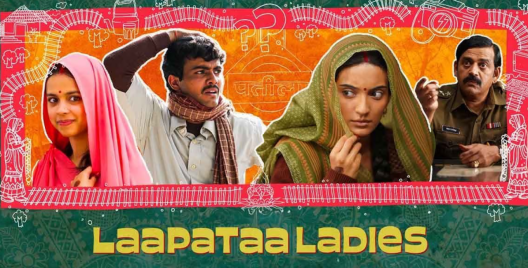It’s heartening to see such conversations on cinema becoming mainstream, and contrary to popular opinion, such discussions don’t “kill” cinema; they contribute to a culture where people engage with the art form seriously. This article is an addition to the discourse.
Premalu is about an aimless, frustrated youth named Sachin (Naslen), who falls in love at the drop of a hat. When his dream of going to the UK fizzles out, he joins his friend Amal Davis for GATE coaching classes in Hyderabad. In the new city, he meets Reenu (Mamitha Baiju), an IT professional, and loses his heart to her immediately.
Reenu and her friend Karthiga (Akhila Bhargavan) are friendly with the boys, but while Karthiga is interested in Amal Davis, Reenu doesn’t view Sachin romantically. This is because of a failed relationship in her past, and her current idea of a perfect man – someone who is successful and well-settled. Meanwhile, Reenu’s team leader at work, Aadhi (Shyam Mohan) develops feelings for her and Karthiga is rooting for Reenu to reciprocate. But, Reenu isn’t interested in him either.
When Sachin finally tells Reenu that he likes her, she rejects him. He’s heartbroken and cold shoulders her when she tries to make him feel better. Eventually, when he’s about to leave for the UK, Reenu realises that she too has feelings for him, and they get into a long distance relationship.
What many find problematic about this depiction is Reenu’s turn-around. Does she really love Sachin or has she been guilt-tripped into feeling that way?
Why must she, a young woman who has her life sorted out, fall for a man so unworthy?
These are indeed valid questions, but it’s also necessary to see how a writer-filmmaker builds a story and tells it. Love stories are messy, and if art must mimic life, on screen romances should be allowed the freedom to have imperfect characters doing imperfect things in a relationship. What’s important is their place in the narrative and how we’re meant to view these actions.
In a gender segregated society where it’s hard for young people to meet and interact without drawing the disapproval of older adults, many romances do start with the idea of pursuit. That is, a young man going after a woman he’s attracted to and “wooing” her. Where this becomes problematic and dangerous is when he’s unable to take it if she doesn’t consent to the relationship and rejects it. Stalking is a pattern of repeated and unwanted attention that makes the victim feel fearful.
For example, in Selvaraghavan’s 7/G Rainbow Colony, Kadhir (Ravi Krishna) continues to pursue Anitha (Sonia Agarwal) though she’s clearly told him that she isn’t interested. He follows her around, touches her without her consent, and insists that she reciprocates her feelings for him. However, though he doesn’t respect her boundaries, the narrative has Anitha falling for Kadhir. The narrative rewards Kadhir for his behaviour and glorifies it as “sincere” love.
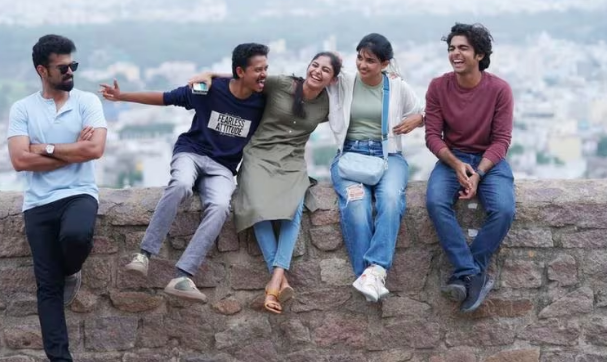
In contrast, when Karthiga calls out Sachin and Amal Davis for following the girls wherever they go, the men stop it. At the scene in the pub where Karthiga, Sachin and Amal have a conversation about Sachin’s feelings for Reenu, Karthiga clearly labels what they’re doing as stalking. While Sachin doesn’t understand what that means, Amal does and tells him that they have to stop.
After that, Sachin does not contact Reenu. It is she who calls him to deliver lunch at her workplace, and that’s how they get back in touch. At this point, Reenu does not know how Sachin feels about her. She likes him as a friend and is puzzled when he drops off the horizon. Here, the narrative recognises the behaviour for what it is and Sachin is not validated for doing it.
Many films have shown young, beautiful and successful women falling for men who don’t seem worthy of their attention. Worse, many of these films also have the man humiliating the woman in some way – physically or verbally – to put her “in her place”. Usually, the woman then bizarrely develops feelings for the man. For example, in Sivakasi (2005), Asin’s character, falls in love with the hero (Vijay), after he justifies a rowdy sexually assaulting her by calling attention to her clothes.
In other instances, the man’s humiliating behaviour is glorified as love even if the woman objects to what he’s doing. The premise of Baby (2023), for instance, is a couple from an underprivileged background growing apart after the woman joins an engineering college and wants better things in life. While there is exactly one scene where she’s allowed to question the hero for calling her a slut, the rest of the film is completely one-sided and justifies the violence unleashed on her. It is as if a woman can’t change her mind about a relationship and what she wants out of it. The narrative deliberately builds a world of sin and deceit around her just because her dreams have changed.
In Premalu, on the other hand, Sachin does not resent Reenu’s independence or the obvious fact that she is better positioned in life. Reenu likes being the nurturer in a relationship. In the scene on the terrace with her friends, she talks about how her ex-boyfriend did not like her “caring” for him. But not only does Sachin enjoy being taken care of, he also reciprocates it. When Reenu has a tummy upset, he goes to great lengths to get her some medicine. She’s surprised by what he does and tells him that no friend of hers has ever done something like this for her. In the climax, too, it is Reenu who saves Sachin from Aadhi’s goons. She is a nurturer, but not in the conventional sense. She has agency of her own and isn’t a damsel-in-distress.

It’s also clear that despite being popular, Reenu feels lonely. She sticks to Karthiga but when Karthiga decides to move to Bengaluru to be with her fiance, Reenu feels left out. She wants someone for herself, but since she has a certain ideal man in mind, she does not consider a relationship with Sachin as a serious prospect. It takes her time to acknowledge her feelings for this goofy young man who seems to be the opposite of her Mr Ideal.
We also get a bit of background to explain why the characters might be like this – Sachin’s parents are forever fighting and can’t see eye to eye on anything. Reenu’s parents are the mushy sort and they make reels together for social media. Sachin is used to being pushed around by others and failing at everything. Reenu is used to doing things for others and never expecting anything in return. They’re very different but also similar in their craving for love and acceptance. The writing doesn’t push two generic characters at the viewer, asking us to accept them and their actions only because one is a man and the other is a woman. Instead, we meet individuals with their own traits and personalities that drive them towards each other.
It is true that Sachin reacts in anger when Reenu rejects him. Later, she is sorry about what she said about him being rejected multiple times. But is this gaslighting? Gaslighting in a relationship is when one partner manipulates another to question their own judgement, reasoning and sanity. Here, Reenu is initially annoyed when Sachin proposes to her because she hasn’t seen him that way. But is it only guilt that makes her reconsider? That would be the case if none of the other scenes that set the context and trajectory for their relationship had been present.
It’s normal for people to go back and forth about their feelings in a relationship, and to be confused about how exactly they see another person. From Jane Austen’s Pride and Prejudice to Girish AD’s Premalu, that is indeed the template for a solid romcom. It is also normal for people to say hurtful things to each other, apologise and make up. Depicting this as such shouldn’t be viewed as gaslighting which is a lot more insidious and criminal.
Moreover, Sachin does not threaten or harm Reenu in any way because of the rejection. He tries to move on. In the end, too, when they become a couple, neither of them “sacrifices” anything to be together. They decide to try out a long distance relationship and see how it goes. The love between them is perfectly ordinary, and it isn’t glorified in any way. It’s possible for them to break up a few months down the line, too.
If characters were perfect from the beginning to the end, there would be no such thing as a character arc in a story. They must be allowed to make mistakes and stumble through the chaos to arrive at clarity. This is especially true of the romcom genre. After all, there is no relationship without drama.





